I’ve been a UAW member for 29 years. I come from a GM family. Like CEO Barra, my roots in this industry run back to the early days when two of my grandparents hired in at GM.
Those jobs were life-changing for my family. Their generation took pride in not only being UAW members, but in working for GM.
We all have our own walk with the Big Three and UAW so what we do here is personal to all of us.
I’ve watched GM’s Delco radio plant in my hometown where my grandparents and many aunts and uncles worked and retired from, go from Delco to Delphi, to GMCH. I’ve watched it shrink from 15,000 employees to now around seventy. I’ve watched it change with technology from transistor radios to making semiconductors.
And now I’m watching that plant suffer the same fate as many others at the hand of corporate greed.
Throughout my 29 years, during the best and worst of times, our members have always delivered.
I appreciate this company doing the right thing recently by placing future truck work at the current truck plants. I consider that a good start. But I want to talk for a minute about the reality of what this company has done over the last 20 years.
From the 2003 agreement forward, this company has closed plants under every contract. Many of these decisions were made under the guise of helping the company be more “competitive.”
Since that time, 31 plants, and then some, have been closed or spun off.
In 2009, the union was unfairly villainized for all that ailed the Big Three.
Our members, both active and retired, made massive sacrifices, such as the suspension of COLA and job security language provisions, just to name a few. All these sacrifices borne by our members were made in an effort to help the Big Three stay afloat and remain “competitive.”
Since the 2019 agreement was ratified, we’ve seen three more plants closed: Baltimore Transmission, Lordstown Assembly, and Warren Transmission.
Many of these workers lives were turned upside down by these decisions. As I traveled the country, I met many of these workers. No matter if it was Spring Hill, Bowling Green, Fort Wayne, Bedford, Wentzville, everywhere I went, there were former Lordstown workers whose lives were uprooted. Some are still waiting for this company to honor their commitment from 2019 to these workers.
Our members worked as essential workers through a pandemic. Some lost their lives to COVID-19, while many at corporate headquarters worked from home and still do three years later.
Many of our members continue to work long hours, six and seven days a week.
We’ve seen this company choose to close Warren Transmission and Baltimore Transmission plants and at the same time form a joint venture called Ultium to build batteries, investing billions of dollars and planning to create thousands of jobs with no commitment to our members or master agreement terms.
We’ve seen the cost of living put further strains on our members’ budgets.
For over 20 years, our members have sacrificed repeatedly, and it is unacceptable that this company has taken many of these actions during the greatest economic expansion and most profitable years in the history of the Big Three.
Our members have busted their asses to deliver quality products to the consumer while their conditions have regressed, and their bodies endure wear and tear due to working seven-day schedules.
The hard work of our members has generated record profits for this company and the workers deserve a commitment as our industry transitions to electric vehicles.
As we embark on this EV journey, we are constantly presented with the same tired script from the companies, that we must remain “competitive,” which is nothing more than a continued race to the bottom in a quest to follow the lowest bidder to pay poverty wages.
We’re not going to fall further behind. We have an obligation to future generations, and to set the standard again. Then we can bring other companies up to our standard.
We have an obligation to do what our ancestors have done, to bring pride back to working for a Big Three company and to leave things better than we found it.
Our mission doesn’t stop here, it begins here.
Today and during bargaining we’re going to hear about how we need to “work together,” and “find solutions to take on the competition.” You can’t preach teamwork and “working together to find solutions” while, for the past several years, “working together” at the Big Three has been a non-existent, one-way street to lower wages and plant closings.
The majority of our members at the Big Three are post-2007 hires with no retirement security. They’ve endured a years-long progression of temporary work and lower pay to get to full pay.
These are sad times when most of your workers can’t afford to buy what they build.
If you want to fix absenteeism, if you want to fix quality, then let’s end the tiers of workers and the progression to full pay. Pay a livable wage, with secure benefits and retirement security.
The bargaining committee, Vice President Booth, the IEB, and I will be presenting economic demands as we progress with bargaining.
As President of our union, I’m here to tell you, this is a new day for our members, and we are going in a new direction. Our members, both active and retired, have sacrificed more than their share, and it’s time this company rewards their sacrifice with economic justice.
We will not stand for the continued lack of respect for our jobs and our future.
How this round of bargaining goes will hinge on whether this company is going to treat workers with the dignity that is long overdue.
I want to be clear; we do not expect the traditional path of opening bargaining, and then spending a month and a half talking our demands to death.
September 14th is a deadline, not a reference point, so it is in the best interest for this corporation to get down to business with our bargaining committee and get to work resolving the demands of the membership.
This is the most critical set of bargaining in this company and our workers’ history.
It’s time to get to work. We have 58 days, and the clock is ticking,
I look forward to finding solutions and our members being rewarded for always delivering through the best and worst of times.
I look forward to shaking hands when we reach a deal that builds a strong future for our members for generations to come.
Thank you.





Penn Postdocs and Research Associates Win Their Union
UNION PLUS – COLLEGE PROGRAM
NYC Mayoral Candidate Zohran Mamdani and AG Letitia James Rally with Striking UAW Legal Workers to Demand Resources Needed to Represent Vulnerable New Yorkers